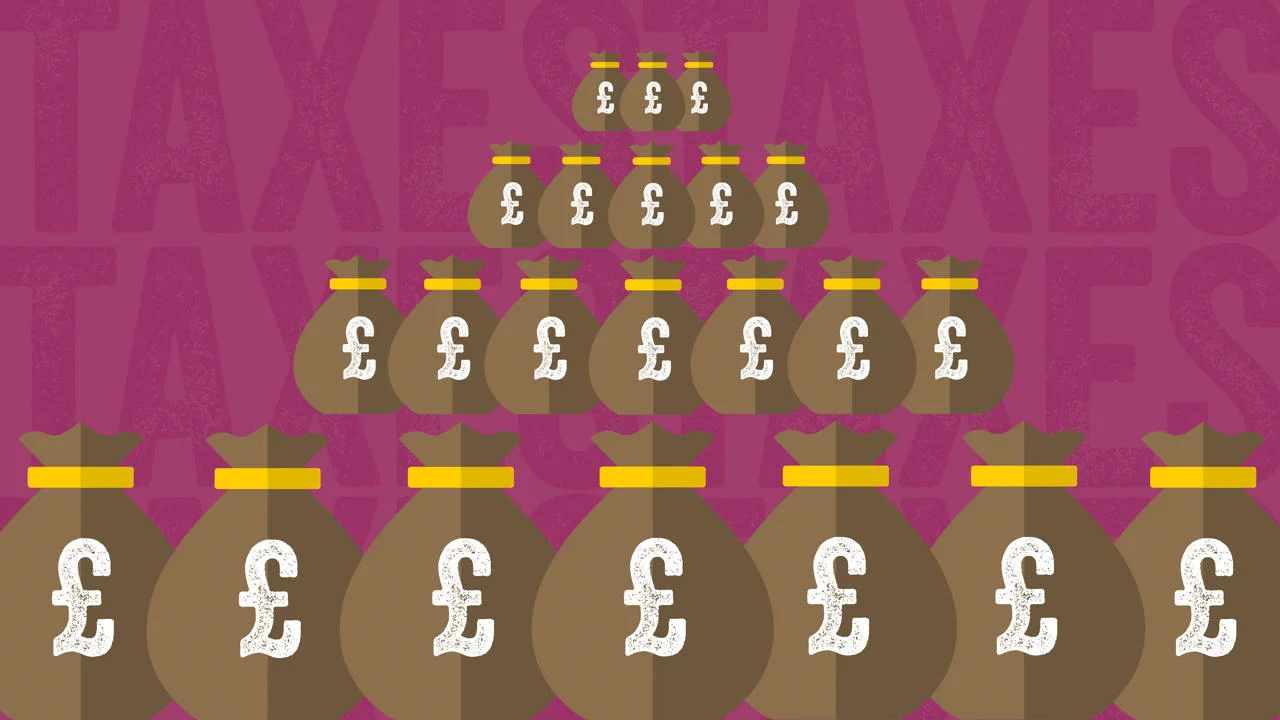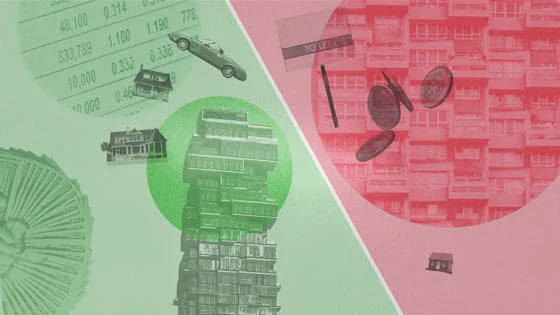How much tax do the rich really pay?

Contents
The unprecedented public spending required to tackle COVID-19 will inevitably be followed by a debate about how to rebuild public finances. At the same time, politicians are already facing far-reaching questions about the widening cracks in the social fabric that this pandemic has exposed, as prior inequalities become amplified and public services are stretched to their limits. Sooner or later, tax rises seem likely, but the question will be: who should pay?
In one respect, the UK tax system already looks top heavy. The top one per cent pay 30 per cent of all income tax revenues: a higher share than at any time in past twenty years. In other words, three in every ten pounds that the government receives in income tax is paid by just over 300,000 individuals. Not surprisingly, this statistic is often quoted by those who argue that the rich cannot be asked to pay more. But it doesn’t tell the whole story.
Does everyone pay the same, and if not, why not?
Our recent research shows there’s a lot of variation in the taxes paid by the rich. Most of the revenue from the top one per cent comes from a cohort of high-earning employees, who pay the often-quoted top rate of 45 per cent income tax plus two per cent national insurance contributions, with minimal deductions or reliefs. But a substantial minority pay much lower rates, especially taking into account capital gains, which offer an alternative way of taking rewards, mainly for the richest.
Where you get your money from (or at least how you package it) matters, because investment income and capital gains are taxed at lower rates than income from work.
Using anonymised data from personal tax returns, we show that in 2015-16 the average rate of tax paid by people who received one million pounds in taxable income and gains was just 35 per cent: the same as someone earning £100,000. But one in four of these paid 45 per cent – close to the top rate – whilst another quarter paid less than 30 per cent overall. One in ten paid just 11 per cent—the same as someone earning £15,000. The rich, it seems, are not all in it together.
These low rates are not driven by complex tax avoidance schemes; they’re part of how our system is designed. Where you get your money from (or at least how you package it) matters, because investment income and capital gains are taxed at lower rates than income from work. What’s more, as the National Audit Office recently highlighted, the government offers tax reliefs claimed to incentivise activities like entrepreneurship, without actually checking whether they achieve these aims.
How to level the tax playing field
One option for a government looking to raise tax revenues would be to implement a new "alternative minimum tax". This would put a floor on the lowest tax rates. If set at 35 per cent on taxable income and gains for all those with over £100,000 per year, our research indicates that this tax could raise £11 billion per year. That’s equivalent to raising both the higher and additional rates of income tax by five pence, but instead of everyone on high incomes paying more, it would be targeted at those currently paying the lowest shares.
Still, some people report relatively little income and gains, even though they have a lot of wealth. For example, business owners who retain profits within their company, or people whose wealth is held in assets that don’t produce an income stream, like land with long-term development potential, luxury items such as yachts, and people’s main (and additional) homes. An alternative minimum tax based on taxable income and gains would not raise more from them.
These low rates are not driven by complex tax avoidance schemes; they’re part of how our system is designed.
Should we tax the most wealthy?
A wealth tax – based on a person’s total assets, minus any debts – is often suggested as the solution to this problem. The UK does not and never has had a wealth tax, although several other countries do – including Switzerland, Spain and Norway – with varying degrees of success.
Before a wealth tax could seriously be considered for the UK, let alone made operational, a number of important questions would need to be answered: Who would pay it, and on what wealth? How would it affect incentives, for example to save and invest? How would we value assets? What mechanisms would be available for those who have low incomes relative to their wealth? How much revenue could it raise? How would it impact wealth inequality and the creation of wealth? Is there any need for a wealth tax in addition to existing taxes? And would the public support it?
At this crucial juncture for UK policymaking, there remains a lack of evidence on these issues. The last time that a UK government considered a wealth tax was in the mid-1970s. This was also the last time that academics and policymakers in the UK thought seriously about how such a tax could be implemented. Over the past half century, much has changed in the mobility of people, the structure of our tax system, the availability of data, and the scope for digital solutions and coordination between tax authorities. Old plans therefore cannot be pulled "off the shelf".
That’s why, with the support of LSE’s COVID-19 rapid response fund, we initiated a new project to investigate whether or not the UK should have a wealth tax, and if so, how to design it. The Wealth Tax Commission brought together a network of world-leading tax experts – academics, practitioners and policymakers – to look at the evidence, international experiences and practical issues.
We published the final Wealth Tax Commission report in December 2020, with the recommendation that, if the government chooses to raise taxes as part of its response to the COVID-19 crisis, it should implement a one-off wealth tax in preference to increasing taxes on work or spending. A one-off wealth tax on millionaire couples paid at one per cent a year for five years, we found, would raise £260 billion.
Read more about the Wealth Tax Commission's final report or find out more at the project website: www.ukwealth.tax.
This project was funded by the Atlantic Fellows for Social and Economic Equity COVID-19 Rapid Response Fund and by the UK Research and Innovation (UKRI) COVID-19 grant. Watch a short film on the Wealth Tax Commission and three other projects involving Atlantic Fellows for Social and Economic Equity, academics and practitioners, or read more about all four projects here.
Download a PDF version of this article





